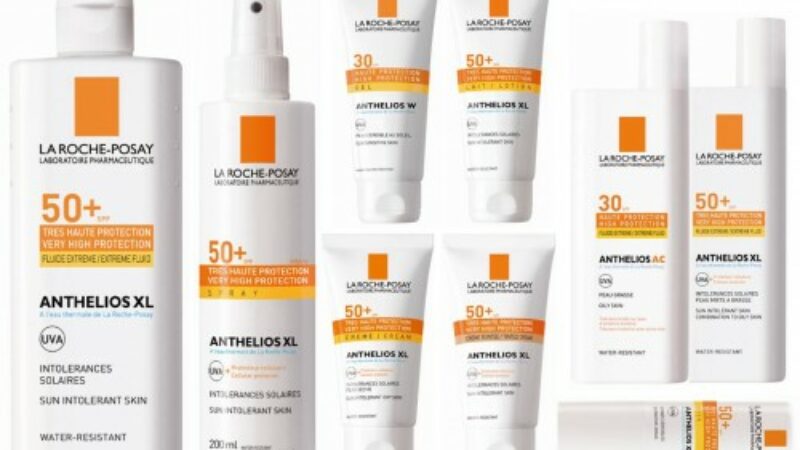Whether it’s the food we eat or the personal care products we use each day, we’re all concerned with reducing chemicals and additives in our lives. While we associate the word “organic” with something that is healthier and better for us, it’s important to keep things in perspective. An organic may not always be your best choice. After all, poison ivy is organic, but it isn’t necessarily the best thing to put on your skin!
When it comes to skin care, are organic or natural products better for you and worth the premium price? The (long) answer may surprise you.
Consider the following 3 facts:
- There is no substantiated, published research anywhere proving that organic ingredients are superior to non-organic or synthetic ingredients. There are good and bad ingredients in each category. For this reason, it’s important to see beyond the marketing so that you can select the formulations best suited to your skin type and concerns.
- Many organic and natural products include synthetic ingredients, and many are exactly the kinds of ingredients they proclaim they don’t include.
- Organic also does not mean cleaner or safer. They may contain essential oils or other ingredients (like fruit acids) which can irritate sensitive skin. Natural essential oils such as peppermint, menthol, eucalyptus, lavender, rosemary and sandalwood are routinely included in natural and/or organic products – these clearly established irritants can actually harm skin. Organic products may have a short shelf life and can harm skin if the product is expired.
So when it comes to “organic”, what does this mean in the world of cosmetics, especially for skin care?
You may be surprised to learn that it really means nothing—nothing at all. However, if you’re still set on using them, look out for two labels – the United States Department of Agriculture (USDA) and ECOCERT (an international organic certification organization), who have their own systems for approving some standards of organic plant claims. Many other random companies have developed their own sets of guidelines for organic cosmetics and then charge a fee for their seal of approval. So, if you’re a cosmetics company who really wants to be certified as organic and are willing to pay for the certification, the “organic” label is yours.
Regardless, if you’re set on using organic skin care products, look for the USDA Seal or Eco-Cert certification. These organizations carry strict criteria for certification.
When it comes to USDA Certification, the following labelling guidelines apply:
- “100% Organic”—The product must only organically produced ingredients contain (excluding water and salt). Products may display the USDA Organic Seal and must display the certifying agent’s name and address.
- “Organic”—The product must contain at least 95% organically produced ingredients (excluding water and salt). The remaining ingredients must consist of non-agricultural substances approved on the National List of non-organically produced agricultural products that are not commercially available in organic form. Products may display the USDA Organic Seal and must display the certifying agent’s name and address.
- “Made with organic ingredients”—The product must contain at least 70% organic ingredients and the label can list up to three of the organic ingredients or “food” groups on the principal display panel. For example, body lotion made with at least 70% organic ingredients (excluding water and salt) and only organic herbs may be labeled either “body lotion made with organic lavender, rosemary, and chamomile,” or “body lotion made with organic herbs.” These products are not permitted to display the USDA Organic Seal, but they must display the certifying agent’s name and address.
ECO-CERT certification involves both an “organic” and “natural” certification. For both certifications, the following standards apply:
- The use of ingredients derived from renewable resources, manufactured by environmentally friendly processes. Ecocert therefore checks for the absence of GMO, parabens, phenoxyethanol, nanoparticles, silicon, PEG, synthetic perfumes and dyes, animal-derived ingredients (unless naturally produced by them as with milk, honey, etc.).
- The biodegradable or recyclable nature of packaging.
- On site audit is performed by an Ecocert auditor.
- For both labels, Ecocert Standard imposes that a minimum of 95% of the total ingredients come from natural origin.
- For Eco-Cert Organic Certification, a minimum of 95% of all plant-based ingredients in the formula and a minimum of 10% of all ingredients by weight must come from organic farming.
- For Eco-Cert Natural Certification, a minimum of 50% of all plant-based ingredients in the formula and a minimum of 5% of all ingredients by weight must come from organic farming.
Ultimately it’s up to you whether you buy organic skin care products. Just remember that the label is not indicative of the quality of what’s in the bottle so it’s important to choose wisely.




